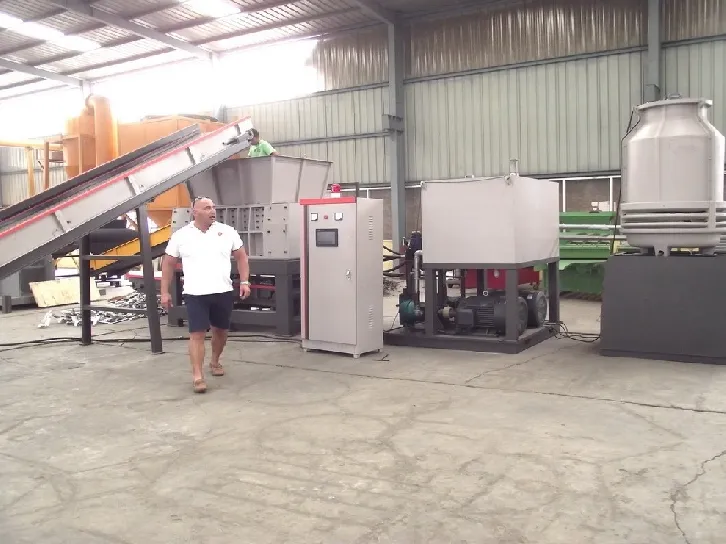

Nov . 28, 2024 08:00 Back to list
The Role of Lead Recycling Plant Manufacturers in Sustainable Development
In the era of increasing environmental concerns and stringent regulations, the role of lead recycling plant manufacturers has become paramount. Lead, a highly toxic metal, has been widely used in various industries, including batteries, glass, and radiation shielding. However, the improper disposal and recycling of lead can lead to severe environmental and health hazards. This is where lead recycling plants come into play, offering innovative solutions to mitigate the impact of lead waste.
Lead recycling plants are designed to reclaim lead from spent products, particularly lead-acid batteries, which are one of the largest sources of lead waste in the environment. The state-of-the-art facilities employ advanced technologies to safely process lead materials and recover a significant percentage of lead for reuse. This not only reduces the need for new lead extraction but also minimizes the harmful effects of lead contamination in the ecosystem.
The Importance of Lead Recycling
Lead recycling is crucial for several reasons. First and foremost, it helps to conserve natural resources. Mining and refining lead ore is an energy-intensive process that leads to significant environmental degradation. By recycling lead, manufacturers can recover valuable metals while conserving energy and reducing greenhouse gas emissions associated with mining operations.
Secondly, lead recycling plays a vital role in protecting human health. Lead exposure, even at low levels, can cause serious health issues, including neurological damage and developmental delays in children. By recycling lead properly, manufacturers can significantly reduce the amount of lead that ends up in landfills and the environment, thereby lowering the risk of exposure to humans and wildlife.
Innovations in Lead Recycling Technology
Lead recycling plant manufacturers are continually innovating to improve the efficiency and safety of lead reclamation processes. Modern facilities utilize cutting-edge technologies such as hydrometallurgical processes, which use aqueous solutions to extract lead from battery components. This method is not only more environmentally friendly but also enhances lead recovery rates.

Furthermore, many manufacturers are incorporating automation and Artificial Intelligence (AI) into their operations. For example, AI can help optimize sorting and processing, ensuring that materials are handled efficiently and with minimal waste. These technological advancements not only improve the overall productivity of recycling plants but also ensure compliance with environmental and safety regulations.
Environmental Regulations and Compliance
With the increasing awareness of environmental issues, governments around the world have implemented stringent regulations concerning lead disposal and recycling. Lead recycling plant manufacturers must navigate a complex landscape of laws and standards to ensure their operations are compliant. This includes adhering to local and international guidelines about emissions, waste management, and worker safety.
Manufacturers must invest in research and development to stay ahead of regulatory changes and improve their recycling methods. Those that successfully innovate can gain a competitive edge in the marketplace while contributing positively to environmental sustainability.
The Global Impact of Lead Recycling
As industries worldwide work towards sustainable practices, the demand for lead recycling will continue to grow. Lead recycling plant manufacturers play a pivotal role in this transition, addressing both supply chain challenges and environmental impacts. By promoting a circular economy where materials are reused and recycled, they are not only responding to market demands but also setting industry standards for sustainability.
In conclusion, lead recycling plant manufacturers are crucial to the ongoing efforts to create a more sustainable world. Through innovative technologies and compliance with environmental standards, these manufacturers are working to reclaim valuable lead resources while protecting human health and the environment. Their efforts are essential in paving the way for a cleaner, more sustainable future for generations to come. In a landscape marked by increasing awareness of environmental issues, these manufacturers will undoubtedly play a significant part in shaping the future of material recycling and resource management.
Latest news
The Future of Metal Recycling: Revolutionizing Waste Management
NewsMay.14,2025
Optimizing Waste with Recycling Lines
NewsMay.14,2025
Municipal Solid Waste Sorting Line: Revolutionizing Waste Management
NewsMay.14,2025
Metal Shredders: Essential Tools for Efficient Recycling
NewsMay.14,2025
Maximize Your Profits with a Copper Wire Granulator
NewsMay.14,2025
Home Metal Shredder: A Smart Choice for Your Home Recycling Needs
NewsMay.14,2025